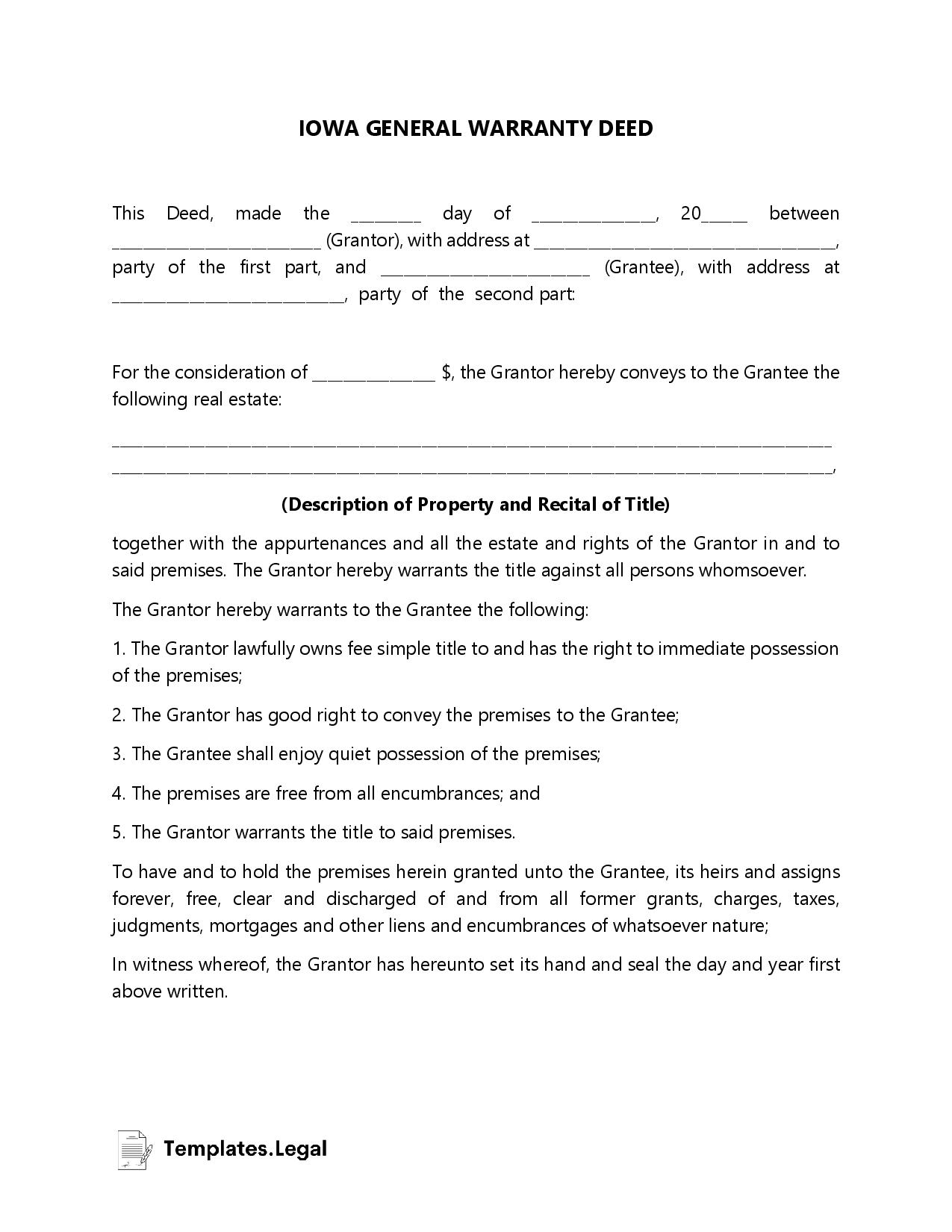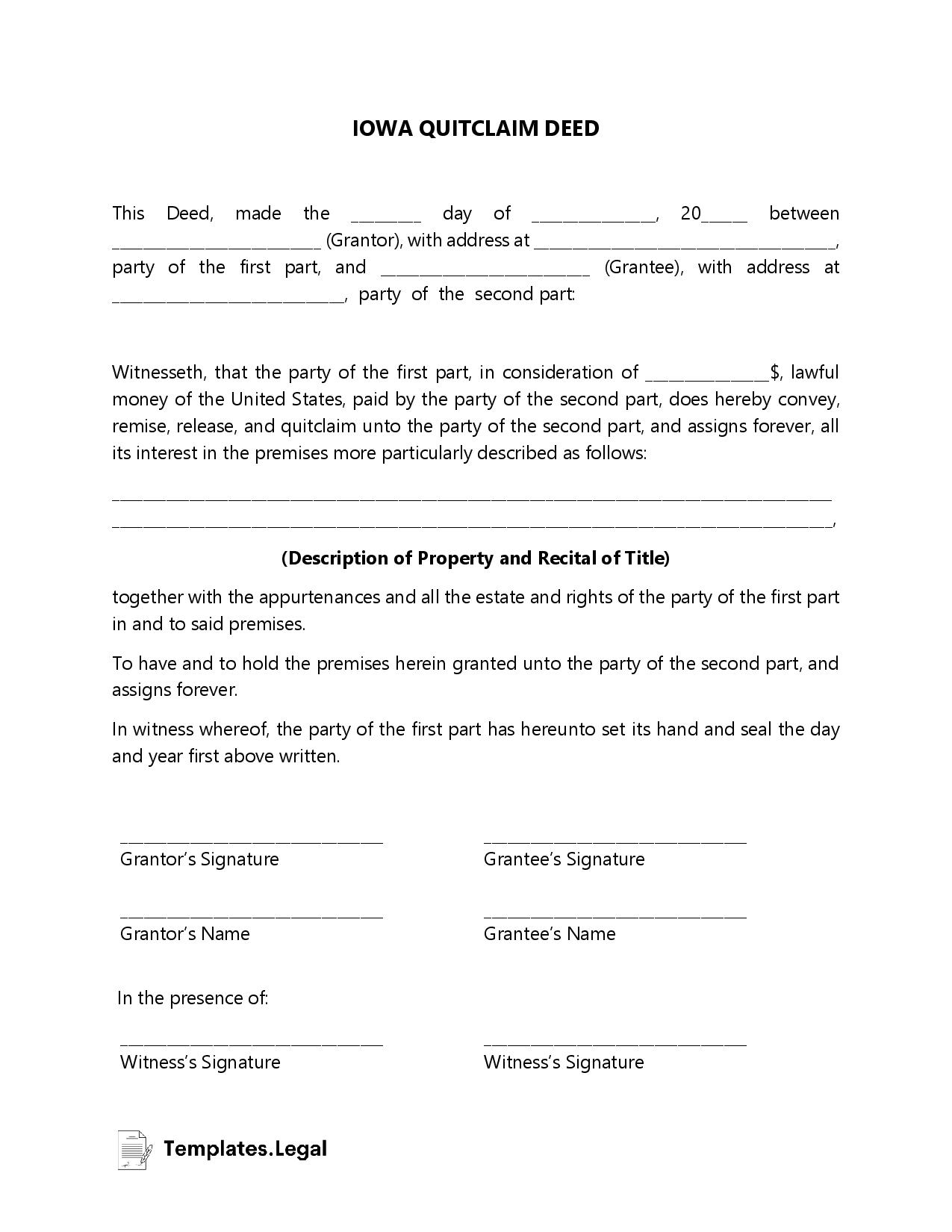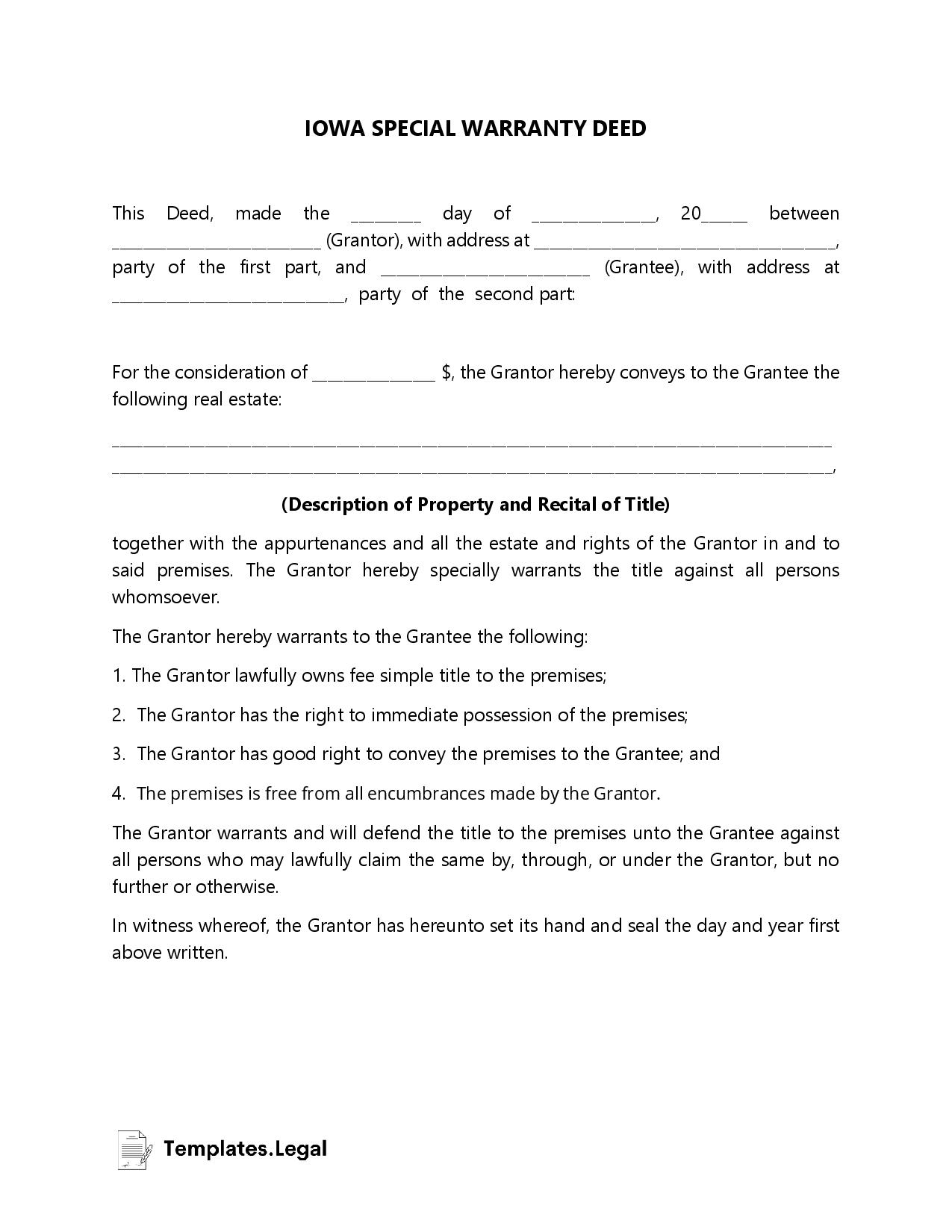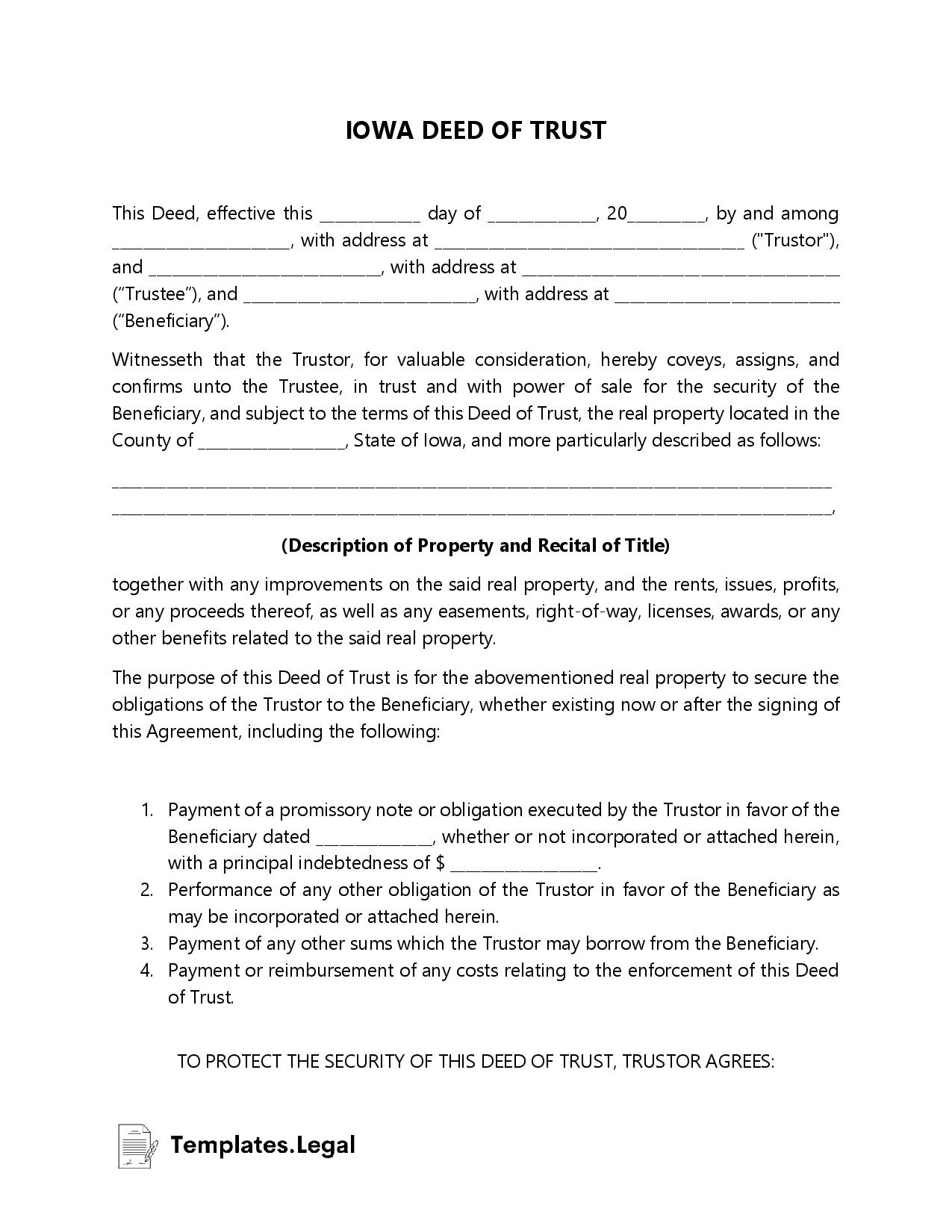Iowa Deed Forms & Templates
Iowa deed forms are recorded and regulated by the state legislature. A tax is imposed on each deed that deals with transferring or granting lands, tenements, and other realty. This tax is determined by several considerations, including the market value of the realty.
Records of any Iowa deeds, such as Iowa property deeds or Iowa warranty deeds, must be accepted and indexed by the county recorder’s office.
Iowa General Warranty Deed
The Iowa warranty deed is a document used to transfer property or real estate from the seller to the buyer. This document typically contains certain guarantees, such as:
- There are no other claims against the property
- The seller has full rights to sell
- The seller will defend against any claims
Iowa warranty deeds provide buyers with a high level of protection.
Iowa Quitclaim Deed
An Iowa quit claim deed transfers property or real estate from a seller to a buyer. Unlike the general warranty deed, the quitclaim deed provides no protection or guarantee for the title in question.
In Iowa, a quitclaim deed must be signed in the presence of a notary and must have the Groundwater Hazard Statement and Declaration of Value attached to it. These items are critical when filing the documents with the County Recorder’s Office.
Iowa Special Warranty Deed
The Iowa special warranty deed is used to transfer property and real estate rights from a seller to a buyer with fewer protections for the buyer.
The seller receives more liability protection in a special warranty deed against issues such as freedom from claims on the title before the seller’s ownership.
There is a great deal of risk involved in a special warranty deed, making them less common in property and real estate transactions. They are most likely to be used in foreclosed or bank-owned property transfers.
Iowa Deed of Trust
The Iowa deed of trust is an agreement between a buyer and a lender. The deed of trust states that the lender will hold the legal title to the property until the buyer repays the loan in full. In Iowa, a trustee is established as an intermediary between the two parties.
The property title acts as collateral for the loan amount until the buyer (or borrower) can pay back the loan. Once the loan is fully paid, the buyer receives ownership of the legal title to the property.
Frequently Asked Questions
Each state has different regulations regarding deeds. Here are some of the frequently asked questions concerning deeds in Iowa.




